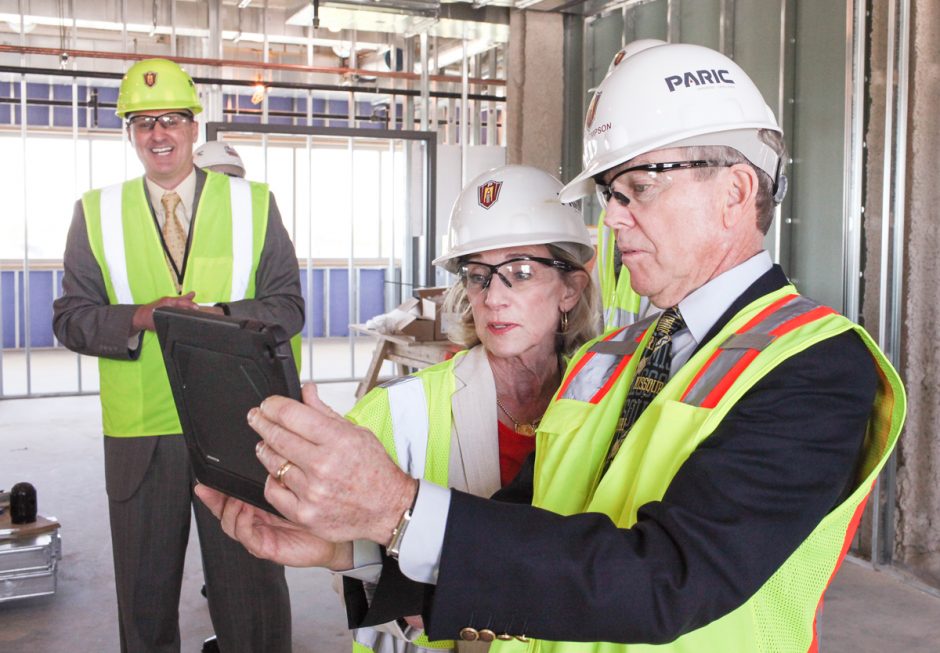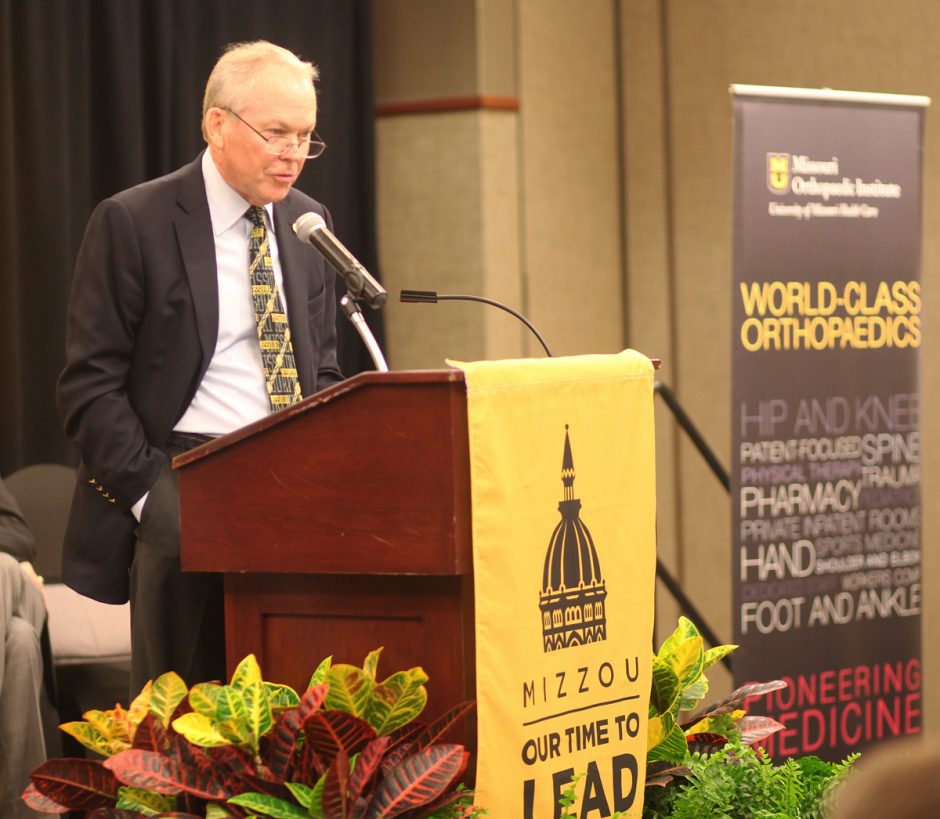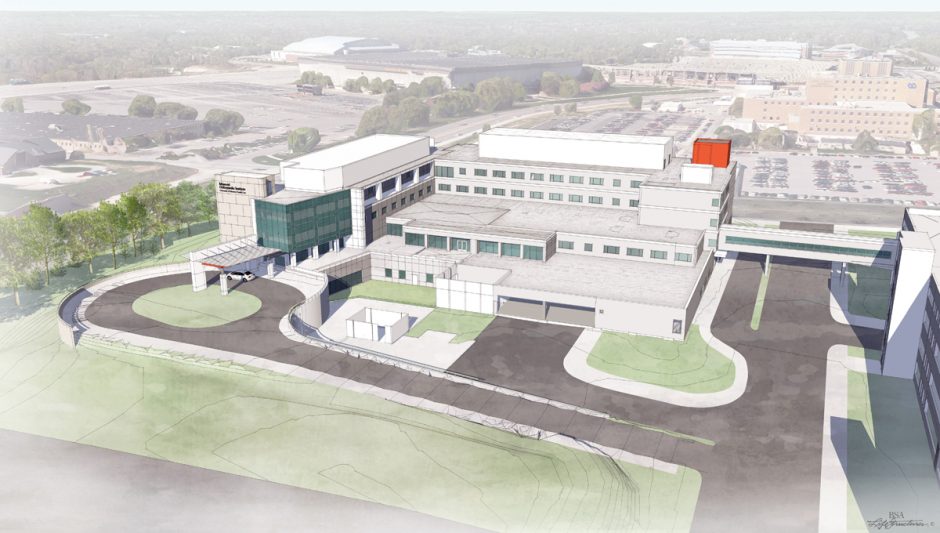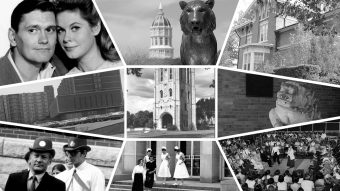
“Do you know what the ‘regenerative’ in ‘regenerative orthopaedics’ means?” asks an excited Bill Thompson. His eyes are wide behind his clear safety glasses; his eyebrows climb up his forehead, hugging the bottom of the white hard hat that covers his graying hair.
Thompson, BS CiE ’68, turns to Jimi Cook, the William and Kathryn Allen Distinguished Professor of Orthopaedic Surgery and director of the Orthopaedic Research Division at MU. Cook is leading a group of 17 donors, visiting doctors and media on a tour of the still-under-construction fourth floor of the expanding Missouri Orthopaedic Institute (MOI).
The fourth floor will essentially be Cook’s laboratory.
Cook starts to explain what he does and how it’s regenerative. He talks about cell cultures and grafting. Thompson jumps in. “Say I blow out my knee. It’s finished. I come here. He takes some of my cells and grows me a new knee.” His eyes go wide again, this time with incredulity. “I don’t understand it.”
Cook laughs. “That’s an engaged donor; he explained it better than I did.”
A Gift for Orthopaedics

The $40 million MOI expansion would have been just three floors. It’s only because of a $3 million gift from Bill and his wife, Nancy Thompson, HES ’67, that the fourth floor — Thompson Regenerative Orthopaedics Laboratory — will exist.
“I am very lucky and blessed to be successful in a career that has generated wealth that I can do something with,” says Thompson, the retired CEO of Pimco, a global investment management firm. “I know the deep value of private investment in higher education. We need private philanthropy to do special things.”
Thompson is no stranger to accomplishing special things at Mizzou. In 2005, his $8.5 million gift helped establish the Thompson Center for Autism and Neurodevelopmental Disorders, now a national leader in the diagnosis and treatment of autism spectrum disorders.
His hope for this gift is to boost the scope and quality of care at MOI to world-class heights.
Dr. James Stannard, MOI medical director, believes it will happen. MOI already is a top-100 provider of orthopaedic medicine. “But this gift is a game-changer,” he says. “We can go from very good to great. That’s an elite jump that only a very few can make.”
Expansion

The regenerative approach Cook and MOI are pioneering is a quantum leap forward in quality of life for patients with joint replacements.
Standard practice for joint replacement is to use metal and plastic parts, which are inherently limiting, uncomfortable and prone to degradation. Cook's idea is to replace damaged joints with the body's own tissue by growing cartilage cells in a high-tech mold. He has already used the procedure in dogs and is pursuing approval for use in humans.
What they do now in humans is use a patient’s own bone marrow stem cells to “seed” a joint transplant. Joint tissue can be transplanted the same way organs can, and the presence of a person’s own cells reduces the risk that the body will reject the donated tissue.
Cook also is completing work on a much-improved preservation system that will triple the amount of time donated tissues remain viable for transplant and make them easier and less costly to store.
In the new center, lab researchers and clinical practitioners will be housed together so that challenges and insights gleaned from the operating room can easily flow to the research bench and vice versa.
It’s the best way to do translational research, says Cook, which is what it’s all about for him. “If it’s not applicable in real life, what’s the point?”
Cook has been at MU since 1998. He says he’s been imagining a center like this since the day he started. At the end of the tour he glances back over the unfinished concrete-and-steel space — but he already sees what it will look like when it opens in October. “It is exactly what I dreamed of. Exactly.”



